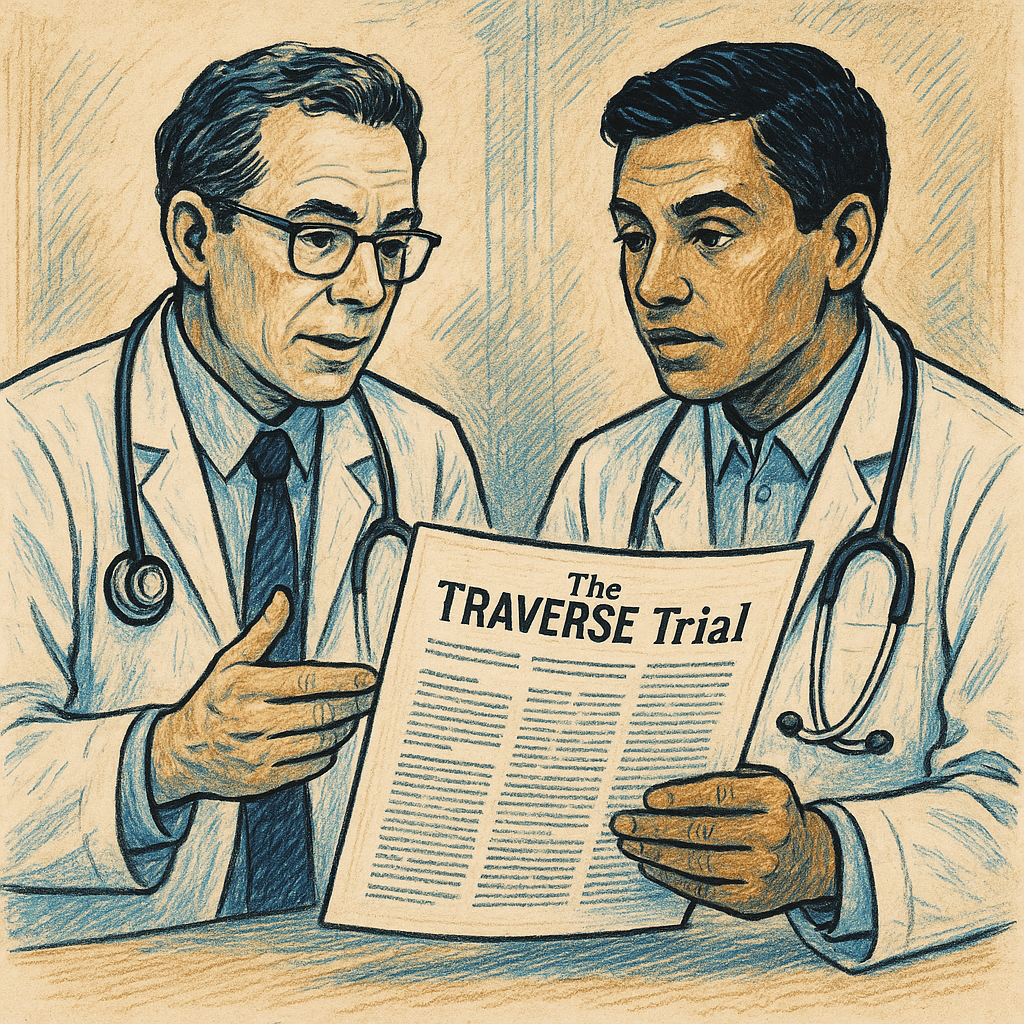Testosterone Replacement Therapy: How the TRAVERSE Trial Transforms Our Understanding
Understanding Testosterone Replacement Therapy
Testosterone Replacement Therapy (TRT) has become an increasingly important treatment option for men experiencing low testosterone levels. This medical intervention aims to restore testosterone to normal ranges (a goal of typically 600-1000 ng/dL) through various methods such as injections, gels, patches, or implanted pellets.
First and foremost, TRT is designed specifically for men diagnosed with hypogonadism—a condition where the body doesn’t produce sufficient testosterone. Common symptoms that might indicate low testosterone include:
-
Decreased sex drive and erectile difficulties
-
Noticeable reduction in muscle mass alongside increased body fat
-
Persistent fatigue and energy depletion
-
Mood disturbances including irritability or depression
-
Diminished bone density
However, despite its proven benefits, TRT has historically been surrounded by misconceptions and safety concerns.
The TRAVERSE Trial: Revolutionizing Our Understanding of TRT Safety
The groundbreaking TRAVERSE trial (Testosterone Replacement therapy for Assessment of long-term Vascular Events and efficacy ResponSE) has fundamentally transformed our understanding of TRT’s safety profile. This landmark study specifically addressed long-standing concerns about testosterone therapy with compelling scientific evidence.
Debunking Major TRT Myths With Scientific Evidence
Myth: TRT Increases Heart Attack Risk
For years, many physicians hesitated to prescribe TRT due to concerns about cardiovascular risks. Nevertheless, the TRAVERSE trial conclusively demonstrated no increased risk of major adverse cardiovascular events (MACE) in men using TRT compared to those taking a placebo. This finding is particularly significant because it directly contradicts previous smaller studies that suggested potential cardiovascular concerns.
Myth: TRT Causes Stroke
Similarly, concerns about stroke have deterred many men from pursuing testosterone therapy. Fortunately, the TRAVERSE trial found no evidence of increased risk of stroke among TRT users. This revelation provides substantial reassurance for both patients and healthcare providers who previously worried about this serious potential side effect.
Myth: TRT Increases Prostate Cancer Risk
Perhaps most importantly, the TRAVERSE trial addressed one of the most persistent concerns about testosterone therapy—its potential link to prostate cancer. Remarkably, the study showed no significant difference in prostate cancer incidence between the TRT group and the placebo group. This evidence directly challenges the long-held belief that testosterone therapy causes an increased risk of prostate cancer development or growth.

Why These Findings Matter For Your Health
The TRAVERSE trial’s robust methodology and large scale make its findings particularly reliable and meaningful. As a result, men considering TRT can now approach this treatment with greater confidence and less anxiety about potential risks.
Additionally, these findings enable healthcare providers to make more informed treatment recommendations based on solid scientific evidence rather than outdated concerns. Consequently, many men who might benefit from TRT but were previously discouraged by safety concerns can now reconsider this potentially life-enhancing therapy.
Beyond Safety: The Transformative Benefits of TRT
The TRAVERSE trial showed that the major risks once believed to be associated with TRT are minimal. With this knowledge in mind, men can feel more comfortable starting TRT in order to experience the numerous known benefits such as improved sexual function, improved bone density, and even moderately reduces depressive symptoms.
Physical Health Improvements
With appropriate TRT treatment, men often experience:
-
Significant increases in muscle mass and strength
-
Noticeable reduction in body fat, particularly around the abdomen
-
Improved bone density, leading to reduced fracture risk
-
Substantially enhanced energy levels for daily activities
Mental and Emotional Wellbeing
Furthermore, many men report remarkable improvements in their mental state after beginning TRT, including:
-
Reduced symptoms of depression and anxiety
-
Sharper cognitive function and better concentration
-
Enhanced overall sense of wellbeing and self-confidence
-
Improved sleep quality and patterns
Sexual Health Benefits
Additionally, TRT typically leads to:
-
Restored libido and sexual interest
-
Improved erectile function
-
Enhanced sexual satisfaction and performance

Making Informed Decisions About TRT
In light of the TRAVERSE trial’s findings, men can now make more educated decisions about testosterone therapy without undue fear of serious side effects. Nevertheless, TRT remains a personalized medical treatment that requires proper evaluation and monitoring.
Therefore, if you’re experiencing symptoms of low testosterone, the first step is to consult with a healthcare provider who can:
-
Conduct appropriate blood tests to confirm testosterone levels
-
Evaluate your overall health status and specific risk factors
-
Determine if TRT is appropriate for your individual situation
-
Develop a personalized treatment plan if TRT is recommended
Conclusion: A New Era for Testosterone Therapy
The TRAVERSE trial has undoubtedly shown that the many of the major risks once thought to be associated with testosterone replacement therapy are in fact myths. Consequently, men suffering from genuine testosterone deficiency can now access this potentially life-changing treatment with greater confidence.
Above all, these scientific advances highlight the importance of following evidence rather than assumptions when making health decisions. As our understanding of hormonal health continues to evolve, treatments like TRT can be more precisely targeted to those who will genuinely benefit while minimizing unnecessary concerns.
If you’ve been hesitant about exploring TRT due to safety concerns, now might be the perfect time to revisit this conversation with your healthcare provider, armed with this updated knowledge from the TRAVERSE trial.

